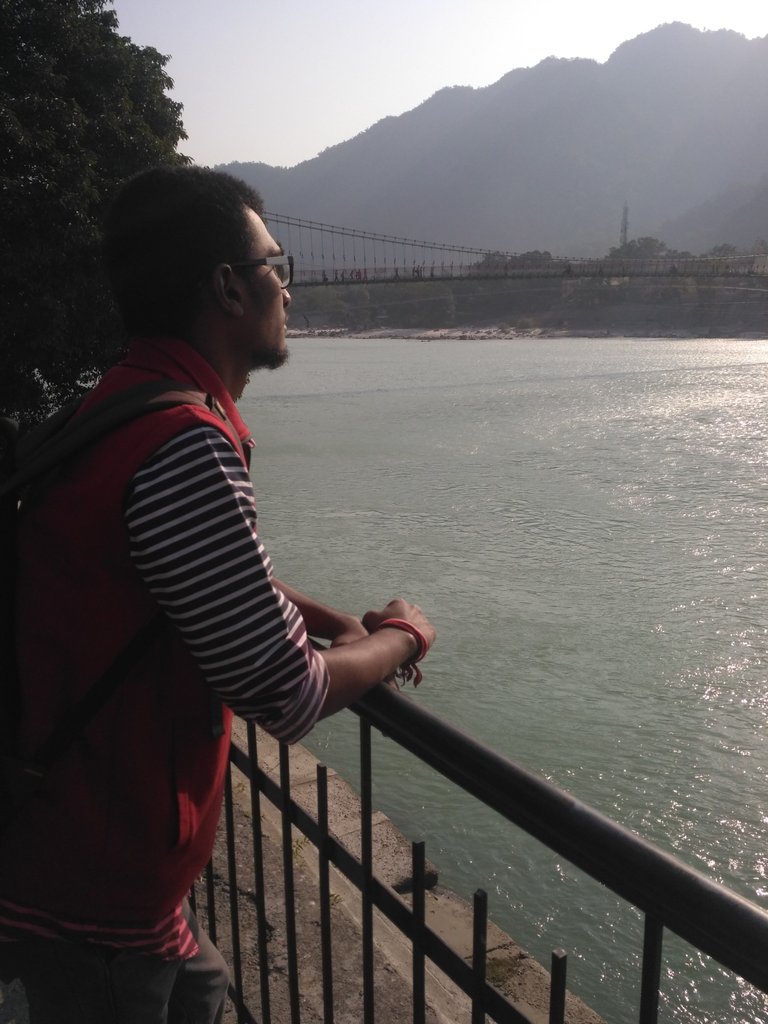
The much-debated new geological époque Anthropocene is the recognition of how significant human impact has been on our environment. We live in a time when we can actively make and transform the world we live in. At the same time we face the possibility of irreparable future damages. Yet, we often feel hopelessly lost and powerless.
We are completely confused. What am I? I can't depend on anyone.
Whether you are a member of an little known indigenous community, like the Karbi people of Assam, or a Berliner (another, truly indigenous community), the quote above captures something we can all relate to. Increased mobility, liquid identities, and personalized news have freed us from these old shackles, and others, creating a host of new anxieties. A concoction of uncertainty, distrust and lack of meaning is the plague of our information culture. With fragmenting worldviews, it has also become more difficult to collaborate in large groups, united by the powerful narratives, which have traditionally united us throughout history.
Sociologist Jean Baudrillard made a disquieting observation in the pages of Simulacra and Simulation, which was published in 1981, when he wrote that we are living within a "hyperreality" where technologically advanced societies can no longer distinguish between reality and simulations – the real and the fictive, human intelligence and artificial intelligence have become intertwined in bewildering, and seamless ways. Simulation has become an acceptable level of reality was his essential point, and the citizens of these advanced societies have gradually come to prefer their hyperreal lives. Just think about all the seductive "walking simulation" games or advertising, which are designed to trick consciousness into detaching from any real emotional engagement.
In Baudrillard's world, our world, one full of paradoxes, there is predictively a counter trend - and in this case it is the longing to connect with the present tense, the leading edge of experience to find something that is "true" in our postmodern hyperreality. An all too common example is the individual's need to physically gather after a terror attack, to feel the authentic warmth of other humans.
Of late, an extreme paradox has emerged in the wake of various cultural trauma: Can a work of art capitalize on the notion of hyperreality, taking it even further to actually offer what is by now an authentic expression, and experience of reality? (Are you getting dizzy yet?). As Umberto Eco suggested, in his essay, Travels in Hyperreality - hyperreality is an expression of a desire for something better than reality and in the pursuit of this urge, false reality is being produced to be consumed as real.
Even if, in our age of Postmodernism, we have lost faith in Utopia, we still search for new bases of integration to create a global society where we begin by collaborating more efficiently. What kind of narrative could possibly unite us is in a meaningful experience, based on something utterly real, that every human being has in common? Benedict Anderson famously described the nation as an "imagined community" - a social construction since "the members of even the smallest nation will never know most of their fellow-members, meet them, or even hear of them, yet in the minds of each lives the image of their communion". But nations have finite borders and nationalism, as a unifying force, always had its dark sides since it operates on exclusion. A radical re-imagination of communities is called for.
Could something, social media aside, allow for a novel form of collective communication: to induce an overview effect to lift us out from our individual differences to connect us with "the others"? We have the potential to create a whole new level of unlimited imagined communities that Andersen certainly didn't see coming. We are talking about nongovernmental, secular, decentralized, alternative communities to institutions such as Facebook and workplaces. Contrary to many other movements we would be exploring future possibilities rather than being stuck in obsolete retro-fantasies.
Anderson argues that communities can be distinguished not by their relative authenticity, but instead "by the style in which they are imagined."
- Now, in your wildest fantasy, imagine a portal between your immediate environment and the life-worlds of distant strangers.
What if a nomadic, potentially unlimited imagined community was somehow created where the connective tissue is a shared fictive reality of things we cannot perceive with our senses but all have in common? Something that is already here around us, but that we have no experience of, like the sensation of the rotation of the earth and the relative positions of celestial bodies in the solar system?
If nationalism can arouse deep attachment, can a nomadic imagined community do so too? With modern day tech-alchemy it is possible to induce a feeling of being part of something greater and to charge human encounters with high emotional arousal in order to overcome differences in a dreamlike but yet "real" state.
Welcome to the edge of the limits of rational knowledge, or what philosophers, since Aristotle, have variously called Agnoseology the "theory of unknowability".
Hi! I am a robot. I just upvoted you! I found similar content that readers might be interested in:
https://www.berlinerfestspiele.de/en/aktuell/festivals/immersion/programm_immersion/immersion17_programm_gesamt/immersion17_veranstaltungsdetail_211797.php